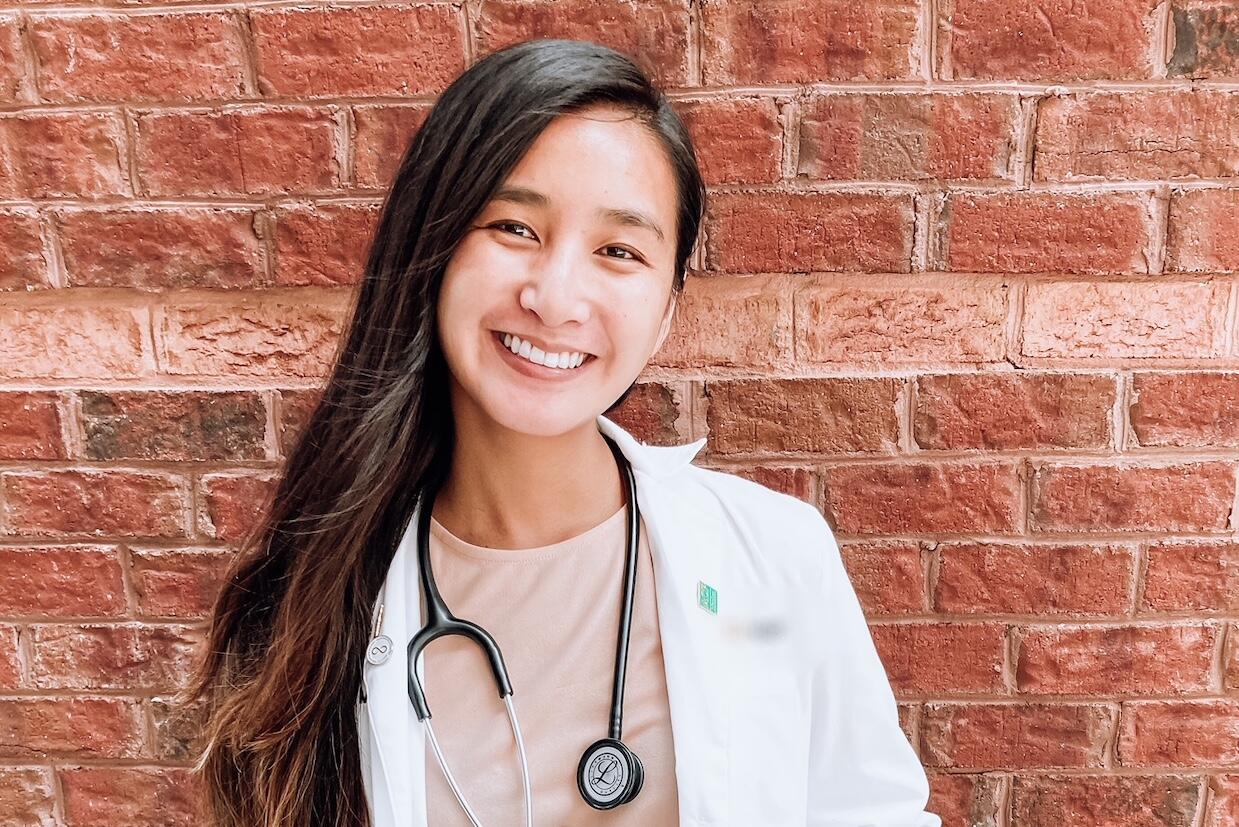
Jan. 8, 2021
Bringing needed care to medically underserved communities
Share this story
Kelly Cheung, a third-year medical student at Virginia Commonwealth University, grew up in a medically underserved area in California. Seeing the struggles her neighbors experienced getting access to quality health care always bothered her.
“The health care disparities I saw between low- and high-income areas were very frustrating. Most medical schools do not train students on how to take care of underserved populations. These patients have a whole different set of needs, not just health care needs,” said Cheung, who is a first-generation college graduate and a 2019 recipient of a National Health Service Corps Scholarship.
NHSC Scholarships are awarded to medical students who are interested in working in underserved communities. Each year, thousands of students representing hundreds of schools throughout the nation apply for the scholarships, and only several hundred are awarded. Students who earn the scholarship commit to serving for at least two years in a community in need after they complete their medical training.
Zachary Mayo, a second-year medical student at VCU, is another NHSC Scholarship recipient. Since 2005, only nine VCU medical students have earned the scholarship, including Cheung and Mayo. Both are enrolled in the medical school’s International/Inner City/Rural Preceptorship program.

The four-year I2CRP program is for medical students who are committed to serving medically underserved populations. The goal is to help students gain the knowledge and skills to provide high-quality, compassionate care to underserved populations and to “increase the number of students who will choose career paths in primary care and who will eventually practice in underserved areas,” said Mary Lee Magee, director of the program and an assistant clinical professor in the Department of Family Medicine and Population Health at the VCU School of Medicine.
Social and mental health needs must be considered when working with underserved communities, Cheung said.
“It requires you to step out of your comfort zone and to think outside the box too,” she said.
Cheung’s personal experiences growing up in a household where English wasn’t spoken, along with witnessing daily struggles to meet basic needs, motivated her to use her medical training in medically underserved communities, Magee said.
“When Kelly [Cheung] told me she had been awarded an NHSC Scholarship, she teared up and shared that, for her, the award was as a tribute to the memory of her grandfather [who raised her like a daughter] who had recently passed away,” Magee said.
Mayo, a Charlottesville native, worked in a clinic in Honduras with an underserved community during a gap year after college.
“It was hard and challenging but super rewarding,” he said. “Health care is something everyone should have. There are communities in the U.S. that don’t have the same access to health care. I want to be able to provide that access and be part of the community I serve.”
His experiences in international underserved communities have “deepened his awareness of social and health disparities and fueled his resolve to address inequity as a health care provider,” Magee said.
The NHSC Scholarship is important to students because it highlights the need for primary care physicians in underserved settings, Cheung said.
“Most med students don’t pursue primary care. They consider other specialties because they're more lucrative and primary care involves more paperwork and stress,” she said. “For students like me who do want to pursue primary care, the scholarship alleviates a lot of financial burden and allows us to focus on our passion for the field.”
Subscribe to VCU News
Subscribe to VCU News at newsletter.vcu.edu and receive a selection of stories, videos, photos, news clips and event listings in your inbox.







